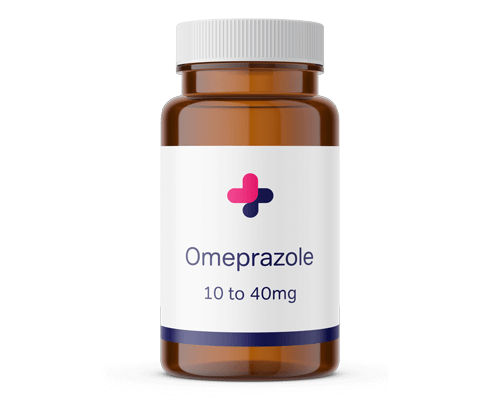Before you start taking Omeprazole
Omeprazole can react with several medications, and some individuals may be allergic to omeprazole. Before you begin treatment, there are a few things you should keep in mind:
- Tell your doctor or pharmacist if you are allergic to Omeprazole, Dexlansoprazole (Dexilant), Esomeprazole (Nexium), Lansoprazole (Protonix), Rabeprazole (Aciphex), and any other medications or additional ingredients in the particular Omeprazole brand you will be taking. Your pharmacist can check the package for a comprehensive list of ingredients.
- Make sure to tell your doctor if you are using Rilpivirine (Edurant, Complera, Odefsey). If you are taking Rilpivirine, your doctor will probably instruct you not to use Omeprazole.
- Make sure you inform your doctor or pharmacist of any prescription and nonprescription medications, nutritional supplements, and herbal products that you might be taking or plan to take.
- Inform your doctor if you are of Asian descent, if you have or have ever had low levels of magnesium in your blood, low levels of vitamin B-12, any autoimmune disease (conditions in which the body attacks its own organs or tissue, leading to inflammation and gradual loss of function), or osteoporosis (a condition in which the bones become weak and brittle).
How to use Omeprazole safely
Prescription Omeprazole is available as a delayed-release capsule or in packets of delayed-release granules. The granules can be mixed in liquid and taken orally or through a feeding tube. The nonprescription (over-the-counter) version of the drug is only available as a delayed-release oral tablet.
Note: The term delayed-release means the medication is designed to delay the release of a drug into the body, usually until it bypasses the stomach and enters the small intestine. This is to prevent the breakdown of the medication by stomach acids. It is, therefore, important that you never split or crush delayed-release medications, as this can cause you to absorb the medication too quickly, resulting in potentially dangerous side effects.
You should always read the patient information leaflet before taking Omeprazole, and you should read it again if you get a refill or new pack of Omeprazole, as the information is regularly updated. Reading the patient information leaflet will give you comprehensive information on how the medication should be used and describe potential side effects you may experience.
Additional antacids can be taken with Omeprazole if needed. You should talk to your doctor if you feel you require more than one antacid as there may be an alternative diagnosis to your symptoms. If you intend to use Sucralfate with Omeprazole, then Omeprazole must be taken at least 30 minutes before Sucralfate.
How regularly should Omeprazole be taken?
The dose and frequency of Omeprazole, which is recommended, or prescribed, will depend on the condition that you are treating. Prescription Omeprazole should be taken at least 1 hour before a meal, once a day. It may be taken up to two times a day when used with other medication as a treatment to eliminate H. pylori, and up to three times a day before meals when used to treat less common conditions in which the stomach produces excess acid. Always follow your doctor’s instructions on how to take Omperazole.
The nonprescription, delayed-release tablets should be taken once a day in the morning, at least 1 hour before food. A typical course lasts 14 days. If additional treatment is needed, another 14-day course may be repeated, but not more than once every 4 months.
It is a good idea to take your Omeprazole at around the same time every day to help remember when to take it.
Make sure you ask your pharmacist to explain anything you do not understand after reading the prescription label carefully.
What should I do if I forget a dose?
If you forget a dose of Omeprazole, take the missed dose as soon as you remember. However, if it is almost time for your next dose, skip the missed dose and take the next dose at your normally scheduled time. You should never double the dose to make up for the missed one. If you are unsure, you should speak to your doctor about this.
What should I do in case of an overdose of Omeprazole?
In case of an overdose, you should immediately call the poison control helpline at 1-800-222-1222, or its equivalence in your area. If you are witness to a victim of a suspected overdose who has collapsed and cannot breathe, or cannot be awakened, call emergency services immediately at 911.
Some of the symptoms of overdose include unusual sweating, confusion, blurred vision, and an unusually fast heartbeat.
You can visit https://www.poisonhelp.org/help for more information.

















Quick and discreet
I ordered Azithromycin tablets for chlamydia treatment, received it next day in a brown discreet pack, and cheaper than all other pharmacies, can't ask for more
Jordan McCann